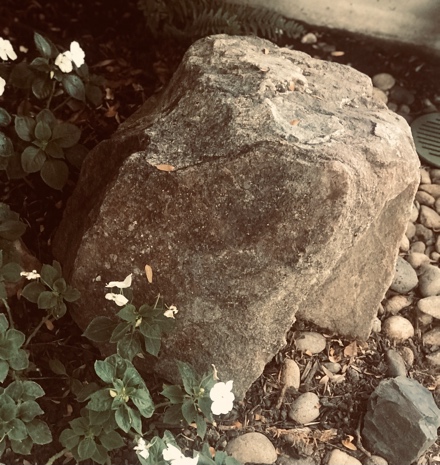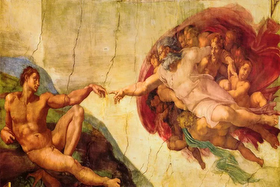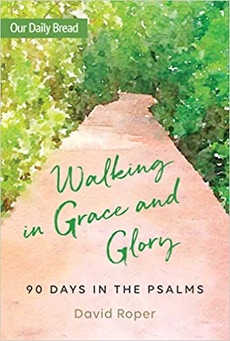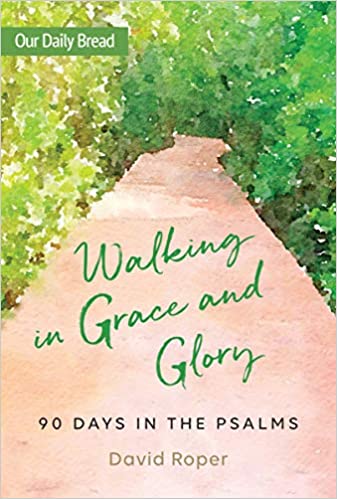"Poor little bird, you can't fly!" "No, but I can look up!" —George MacDonald
Thursday, December 30, 2021
Looking Up
Monday, December 13, 2021
Nativity I
An ad hominem reaction is an argument directed against a person rather than the position he or she is maintaining. It’s a logical fallacy.
12.12.21
Tuesday, November 23, 2021
Global Warming
“And the fourth angel poured out his vial upon the sun; and power was given unto him to scorch men with fire. And men were scorched with great heat, and blasphemed the name of God, which hath power over these plagues: and they repented not to give him glory.” —Revelation 16:8-9
I decided last summer to put an end to some of my questions about global warming and read a number of books and articles on both sides of the debate. Like that fabled poet, I "frequented doctor and saint, and heard great argument..."
First off, it does seem that the earth is warming though it’s impossible to know if this is a cycle, or a trend leading to an extinction event. Only time will tell. (It was somewhat comforting to learn that 2020 was a bit cooler than 2014.)
Second, though we're putting more hydrocarbons into the atmosphere than in previous centuries, there's no evidence that these "greenhouse gasses" are necessarily the cause of global warming. That's a conclusion beyond science and the scientific method.
So, like that poet, I, unconvinced either way, "came out by the same door as in I went."
But, though I'm agnostic about global warming, I have one certainty: God makes earth's weather. Global warming, if it exists, is not anthropogenic (man-created), as they say. God controls earth's environment and uses it to get our attention.
Whenever we're tempted to play God, he shows us we're not quite ready yet. Typhoons, tsunamis, tornadoes, earthquakes, volcanic eruptions, drought, catastrophic floods, and out of control forest fires make it obvious who's running the show.
David Roper
11.19.21
Friday, November 19, 2021
The Vine
“I am the true vine, and my Father is the vinedresser. Every branch in me that does not bear fruit he takes away…” (John 15:1).
Jesus and his disciples were making their way through the Kidron Valley on their way to the Mount of Olives, passing through vineyards along the way. A simile sprang to Jesus’ mind: I am like a vine; my disciples are my branches; God, my Father, is the vigneron.
Jesus introduces the analogy with what appears to be a stern warning: “Every branch in me that does not bear fruit he (the Father) takes away…” This, at least, is the way most versions render this verse.
I would suggest an alternate and more hopeful translation: “Every branch in me that does not bear fruit, he lifts up from the ground.”
The words translated “he takes away,” is one Greek verb that, in its fundamental sense, means “to lift (something) up.” (The early Latin versions of this verse translate the phrase with tollet, “he raises up.”)
In that culture vinedressers often found live branches that were firmly attached to the vine, but, having fallen off the treillage, were trailing in the dirt. First they took each leaf in hand and washed it down, wiping away the mud, mold and infestation. Then they “lifted it up” and attached the branch once again to the trellis, in fresh air and sunlight, away from vermin and grime.
So, Jesus assures us: Your Father will not “take you away” when you fall, even though you fall again and again. He is faithful and just to forgive you and cleanse you from all unrighteousness. He will “lift you up” that you may bear fruit—indeed much fruit—once again (15:2,3).
Mine is hope in my Redeemer
Though I fall, his love is sure
Christ has paid for every failing
I am His forevermore —CityAlight
David Roper
11.17.21
Tuesday, November 16, 2021
Augustine and His Kin
“What do people mean by being baptized on behalf of the dead? If the dead are not raised at all, why are people baptized on their behalf” (1 Corinthians 15:29).
“I have no idea what this text means., Augustine wrote in a commentary on 1 Corinthians 15,and in reference to Paul’s phrase, “baptized on behalf of the dead."
To be Augustinian is to approach the scriptures with full awareness that we “know in part,” to never allow our certitude (how sure we are) to outstrip our certainty (how sure a thing is).
John Calvin, said, “Let this be our sacred rule: to seek to know nothing except what scripture teaches us; when the Lord closes his holy mouth, let us go no further.” Or, as Paul would say, let's not “go beyond what is written” (1 Corinthians 4:6).
I’m told that one evening after dinner at one of the Oxford colleges, a porter handed an English Lord his hat. “How did you know it was mine?” the Lord asked. “I didn’t,” the porter responded, “I just knew it was the one you came in with.”
Bully for him: A steady refusal to go beyond the facts.
David Roper
11.16.21
Wednesday, November 10, 2021
Working Together With God
| ||||||||
Monday, November 8, 2021
Feed My Lambs
“Simon, son of John, do you love me? Feed my lambs…” (John 21:13)
In 1627, Samuel Rutherford penned a letter to Marion M'Naught, wife of William Fullerton, minister of a small Presbyterian church in Kirkcudbright, Scotland. Things were not going well for William, and he had few to "speak a good word" for him. He wanted God to "transplant" him to another place, perhaps a larger place where his gifts would be acknowledged and better utilized.
Rutherford wrote, "All God's plants, set by His own hand, thrive well. Ask of God a submissive heart. Continue for the love of the Prince of your salvation, who is standing at the end of your way, holding up in His hand the prize and the garland to the race-runners. Your reward shall be with the Lord, although the people be not gathered (as the prophet speaks); and suppose the work do not prosper...you shall not lose your reward.”
Though the people be not gathered, "continue for the love of the Prince of your salvation.” Shepherd His lambs. Teach, pray, listen to their bleating and love them. Do it because you love Jesus “who is standing at the end of your way, holding up in His hand the prize and the garland to the race-runners.”
Though “the work do not prosper...you shall not lose your reward.”
David Roper
11.8.21
Thursday, November 4, 2021
A Righteous Tree

Evergreens don't drop their leaves and lose their shape in the winter, and they keep their verdure and foliage all year long. Thus in ancient times they were considered "righteous" because they always looked like trees—trees as trees are supposed to be.
Righteousness these days is associated with fusty, finger-wagging prudes who are “good” in the worst sort of way, but ancient etymology belies that meaning: Personal righteous is "being what a man or women is supposed to be."
We all have vestigial memories of what we’re supposed to be. It’s that idea—it exists in the worst of us—that makes us want to be better.
C.S. Lewis (I think it was) once said that you can slap an alligator on the back and say "Be an alligator" and he will be unmoved by your entreaty. But clap a man on the back and say "Be a man"and he will know exactly what mean. (This was written before the age of gender sensitivity.)
This is the righteousness that Jesus has promised to all who seek it and ask it of hm: “Blessed are those who hunger and thirst for righteousness, for they shall be satisfied" (Matthew 5:6).
David Roper
11.4.21
Hope Floats
"Love bears all things, believes all things, hopes all things, endures all things" (1Corinthians 13:7).
No human being is hopeless. Only demons are hopeless, for their character is fixed for all eternity. Everyone else deserves the benefit of doubt.
Love is a refusal to give up on others; to take failure as final. It sees promise and looks for progress, no matter how slight. It prays and hopes and waits for ultimate triumph through the grace of God.
A friend of mine once mused that he'd rather have it said that he loved too many than that he loved too few. Indeed, we may love too many, be fooled by pretense and our hearts may be broken, but, it's better to be less like Lucy, and more like Charlie Brown.
David Roper
11.3.21
Thursday, October 21, 2021
Lessons from the Lord of the Flies
One day Ahaziah fell through the balcony railing on the rooftop of his house in Samaria and was injured. He sent messengers off to consult Baal-Zebub, (the Lord of the Flies) the god of Ekron, "Am I going to recover from this accident?" GOD's angel spoke to Elijah the Tishbite: "Up on your feet! Go out and meet the messengers of the king of Samaria with this word, 'Is it because there's no God in Israel that you're running off to consult Baal-Zebub god of Ekron?” (2 Kings 1:2,3).
10.21.21
Sunday, October 17, 2021
When God Gives In
They only cared about pleasing themselves…
And provoked God with their insistent demands.
So He gave them exactly what they asked for—
but with it they got an empty heart. —Psalm 106:14-15 (The Message)
Psalm 106 is a catalogue of moral failure, summed up in a laconic confession: "We sinned a lot” (106:6).
Out of this litany of bad behavior, one verse caught my eye: “(God) gave them (Israel) exactly what they asked for, but with it they got an empty heart” (106:15).
The incident the poet had in mind is described in the book of Numbers: “The riff-raff among the people had a craving and soon they had the People of Israel whining, ‘Why can't we have meat? We ate fish in Egypt—and got it free!—to say nothing of the cucumbers and melons, the leeks and onions and garlic. But nothing tastes good out here; all we get is manna, manna, manna’” (11:4-5).
"Where's the meat?" the people of GOD cried. “Why can’t we go back to Egypt and have the good life we enjoyed there?” (How soon we forget.)
Moses replied, “You want meat do you? Well, God’s going to give you meat. You're going to eat meat, not for a day or two days, or five or ten or twenty days but for a whole month. You're going to eat meat until its coming out of your nose. You're going to be so sick of meat that you'll gag and throw up at the mere sight of it”— which is exactly what happened. (You can read the story for yourself in Numbers 11.)
What's the point? Well, if I want something my Father in Heaven does not want for me—because in His infinite wisdom He knows it would be ruinous—and I want it bad enough, and keep asking for it, He may give it to me, but the result will be emptiness and self-loathing.
So then, I must be careful about what I want because, in the end, I may not want what I wanted at all.
God's "giving in" is always redemptive, however, designed to turn us around and give us the truly good life. It was the pig pen, you know, that turned the Prodigal toward home.
David Roper
10.17.21
Thursday, October 14, 2021
Disordered Love
Tuesday, October 12, 2021
Growing Slowly Wise
Monday, October 11, 2021
Light Dawns
Thursday, October 7, 2021
Lingering
"For to me to live is Christ, and to die is gain. If I am to live in the flesh, that means fruitful labor for me. Yet which I shall choose I cannot tell. I am hard pressed between the two. My desire is to depart and be with Christ, for that is far better. But to remain in the flesh is more necessary on your account. Convinced of this, I know that I will remain and continue with you all…" (Philippians 1:21-26).
Wednesday, October 6, 2021
Outcome
(God) knows the way he takes;
when he has tried me,
I shall come out as gold (Job 23:10)].
Monday, October 4, 2021
Hello Darkness
"Darkness has become my friend" (Psalm 88:18).
Saturday, October 2, 2021
The Limits of Our Liberty
Do you not know that in a race all the runners run, but only one receives the prize? So run that you may obtain it. Every athlete exercises self-control in all things. They do it to receive a perishable wreath, but we an imperishable. So I do not run aimlessly; I do not box as one beating the air. But I discipline my body and keep it under control, lest after preaching to others I myself should be disqualified (9:24-27).
Tuesday, September 28, 2021
The Rock

Monday, September 20, 2021
Speak No Evil
Saturday, September 18, 2021
Contrarities
Wednesday, September 15, 2021
Holding and Held
I hold on to you;
Your right hand holds on to me—Psalm 63:8
Monday, September 13, 2021
Mad in Pursuit
Sunday, September 12, 2021
Tears
Going and Not Knowing
"By faith Abraham obeyed when he was called to go out to a place that he was to receive as an inheritance. And he went out, not knowing...
-
"By faith Abraham obeyed when he was called to go out to a place that he was to receive as an inheritance. And he went out, not knowing...
-
Do Dogs Go To Heaven? Now, about Rover, the dog—though for roving, I hardly remember him away from my side! ...I almost believe that at...
-
I took a spectacular fall last week—I cratered, as snowboarders say—in consequence of which I began a three-day stay in the hospital for o...





